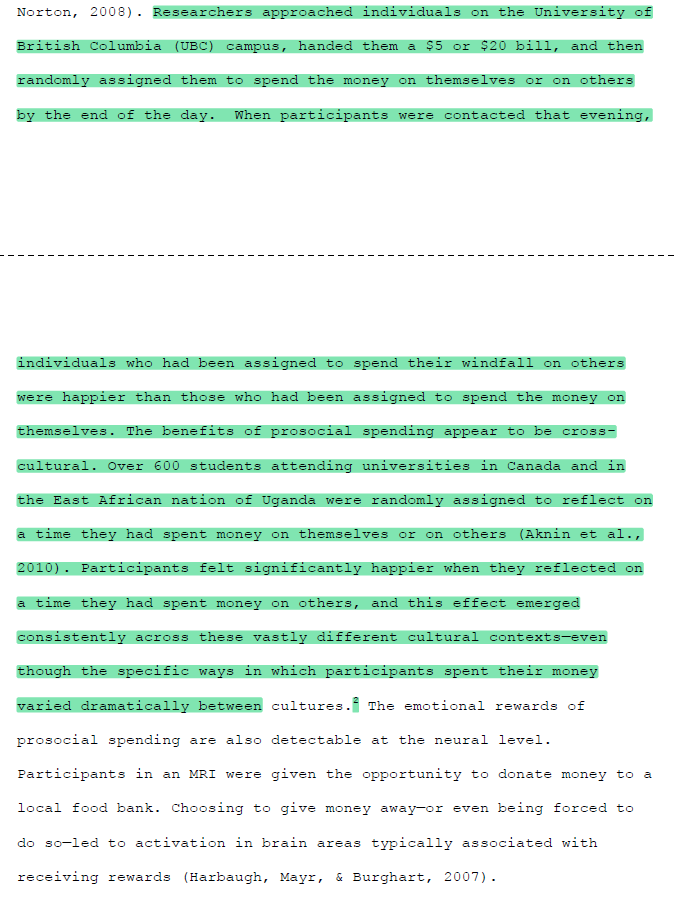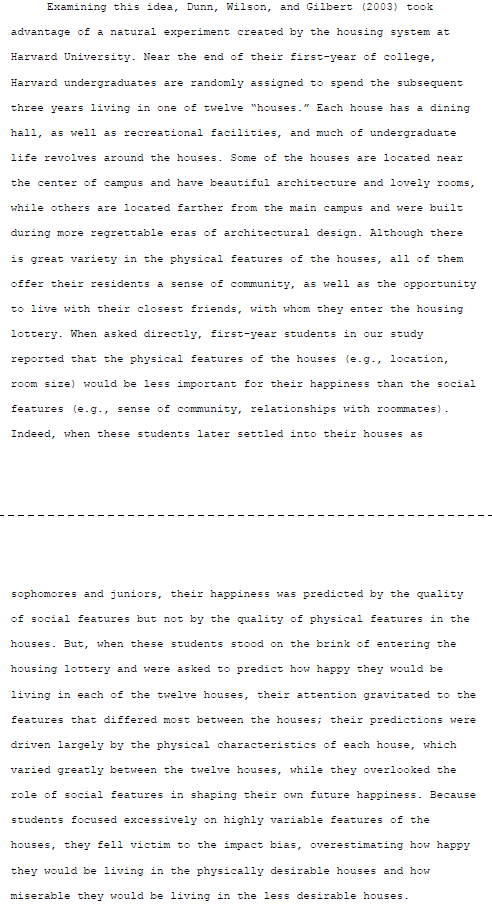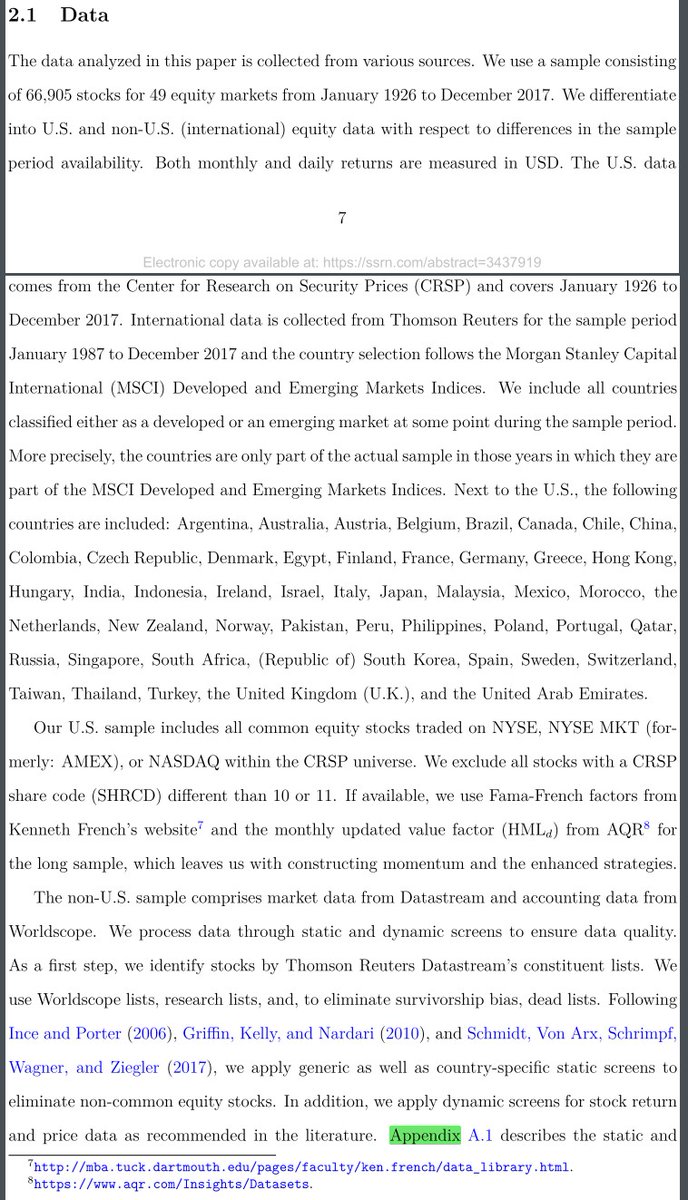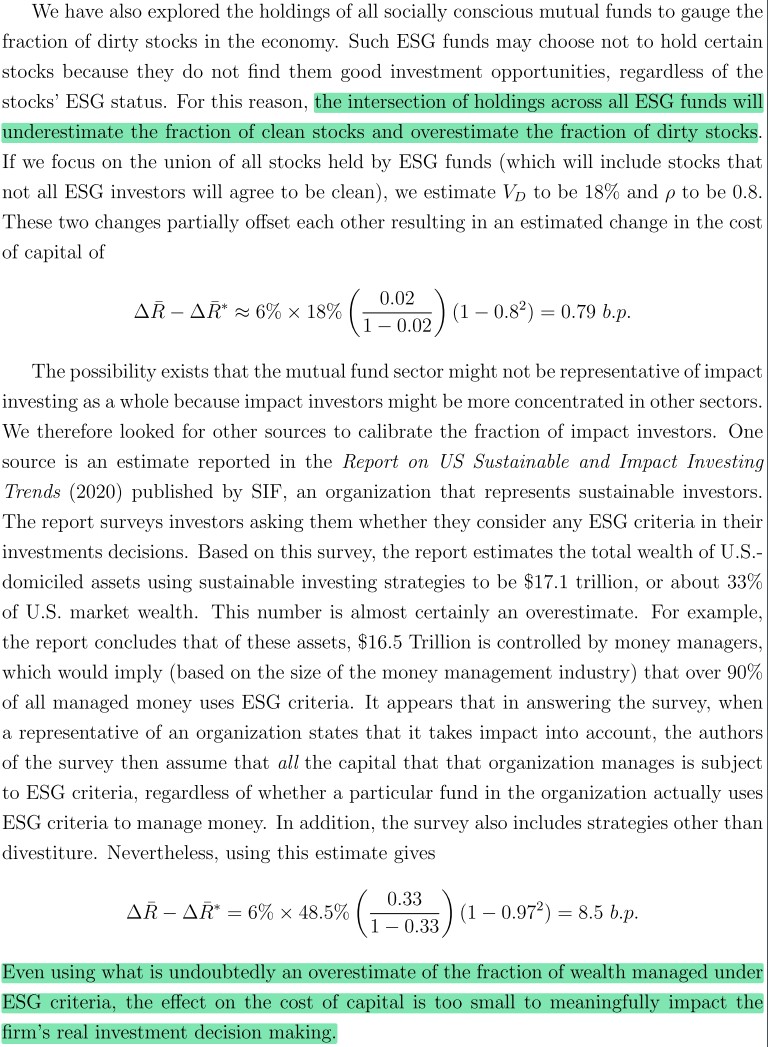
1/ If Money Doesn't Make You Happy Then You Probably Aren't Spending It Right (Dunn, Gilbert)
"Drawing on empirical research, we propose eight principles designed to help consumers get more happiness for their money."
scholar.harvard.edu/files/danielgi…
"Drawing on empirical research, we propose eight principles designed to help consumers get more happiness for their money."
scholar.harvard.edu/files/danielgi…

2/ "The income-happiness correlation is positive but modest; this should puzzle us.
"Money allows people to live healthier lives, buffer against worry and harm, have leisure time with friends and family, and control their daily activities—all of which are sources of happiness.
"Money allows people to live healthier lives, buffer against worry and harm, have leisure time with friends and family, and control their daily activities—all of which are sources of happiness.
3/ "Money is an opportunity for happiness, but people routinely squander it the things they think will make them happy often don’t.
"A sizeable literature shows that affective forecasts are often wrong. People’s mental simulations of future events are almost always imperfect.
"A sizeable literature shows that affective forecasts are often wrong. People’s mental simulations of future events are almost always imperfect.
4/ "For example, people don’t anticipate the ease with which they will adapt to positive and negative events, don’t fully understand the factors that speed or slow that adaptation, and are insufficiently sensitive to the fact that mental simulations lack important details."
5/ "Principle 1: Buy Experiences Instead of Things
"When participants were randomly assigned to reflect on past purchases, they experienced elevated mood when contemplating past experiential purchases (relative to those contemplating past material purchases).
"When participants were randomly assigned to reflect on past purchases, they experienced elevated mood when contemplating past experiential purchases (relative to those contemplating past material purchases).
6/ "Although the difference between the most and least pleasant activities is significant, it is also small.
"People were most happy when thinking about what they were doing. Time-lag analyses revealed that mind-wandering was a cause, not just an effect, of diminished happiness.

"People were most happy when thinking about what they were doing. Time-lag analyses revealed that mind-wandering was a cause, not just an effect, of diminished happiness.


7/ "A wandering mind is an unhappy mind. Experiences keep us focused on the here and now.
"People adapt most quickly to that which doesn’t change. As opposed to cherry floorboards, which stay the same, each session of a year-long cooking class is different from the one before.
"People adapt most quickly to that which doesn’t change. As opposed to cherry floorboards, which stay the same, each session of a year-long cooking class is different from the one before.
8/ "83% of Cornell students reported mentally revisiting their experiential purchases more frequently than their material purchases.
"Some (e.g., climbing a mountain or making love to a new partner) may even be better contemplated than consummated."
"Some (e.g., climbing a mountain or making love to a new partner) may even be better contemplated than consummated."
9/ "It's difficult to compare a bicycle ride through the Arctic to the sunny wine tour we could have taken instead—saving us from troubling ruminations about the road less traveled.
"Experiences are more likely to be shared w/others; people are our greatest source of happiness."
"Experiences are more likely to be shared w/others; people are our greatest source of happiness."
10/ "Principle 2: Help Others Instead of Yourself
"Improving our connections with others tends to improve our happiness as well.
"Participants felt happier when they reflected a time they had spent money on others. This emerged consistently across different cultural contexts."
"Improving our connections with others tends to improve our happiness as well.
"Participants felt happier when they reflected a time they had spent money on others. This emerged consistently across different cultural contexts."

11/ "Although the benefits are robust across cultures and methodologies, they are invisible to many people. A significant majority of UBC students made an affective forecasting error: they thought that spending money on themselves would make them happier than spending on others."
12/ "Principle 3: Buy Many Small Pleasures Instead of Few Big Ones
"Across different domains, happiness is more strongly associated with the frequency than intensity of positive experiences.
"Anything that makes an event more difficult to understand & explain delays adaptation.
"Across different domains, happiness is more strongly associated with the frequency than intensity of positive experiences.
"Anything that makes an event more difficult to understand & explain delays adaptation.

13/ "This includes novelty, surprise, uncertainty, and variability.
"We can offset diminishing marginal utility by breaking up a pleasurable experience through time.
"Eating two 6-ounce cookies on different days may be better than eating a 12-ounce cookie at a single sitting.
"We can offset diminishing marginal utility by breaking up a pleasurable experience through time.
"Eating two 6-ounce cookies on different days may be better than eating a 12-ounce cookie at a single sitting.
14/ "Adaptation can occur quickly: after 80 seconds, participants acclimated to the pleasure of a massage, which was renewed when it was stopped and begun again.
"Wealth promises access to peak experiences, which undermine the ability to savor the small pleasures of daily life."

"Wealth promises access to peak experiences, which undermine the ability to savor the small pleasures of daily life."


15/ "Principle 4: Buy Less Insurance
"Research on how well people cope with a wide variety of traumas and tragedies—from heart attacks to terrorist attacks—suggests that people are not the emotionally fragile creatures they often imagine themselves to be.
"Research on how well people cope with a wide variety of traumas and tragedies—from heart attacks to terrorist attacks—suggests that people are not the emotionally fragile creatures they often imagine themselves to be.
16/ "Businesses often trade on that ignorance by offering various forms of insurance against unhappiness, from extended warranties to generous return policies, which are widely acknowledged to be bad bets for the buyer."
17/ "People seek extended warranties and generous return policies in order to preclude the possibility of future regret, but research suggests that the warranties may be unnecessary for happiness and that the return policies may actually undermine it." 

18/ "Principle 5: Pay Now and Consume Later
"Borrowing money to consume today eliminates anticipation, which is a source of free happiness.
"Positive (negative) events that lie in the future seem better (worse) than the same events in the past.

"Borrowing money to consume today eliminates anticipation, which is a source of free happiness.
"Positive (negative) events that lie in the future seem better (worse) than the same events in the past.


19/ "Uncertainty may help to counteract the process of adaptation.
"A kid may entreat his mother to reveal which toy she is planning to buy him the next day, but she would be wise to keep mum and treat him to a pleasurable day of fantasizing about water fights and flying kits."
"A kid may entreat his mother to reveal which toy she is planning to buy him the next day, but she would be wise to keep mum and treat him to a pleasurable day of fantasizing about water fights and flying kits."

20/ "Principle 6: Think About What You’re Not Thinking About
"On any given day, affective experience is shaped by one’s current situation (experiencing time pressure at work, leisurely dinner with friends) rather than more stable circumstances (high job security, being married).
"On any given day, affective experience is shaped by one’s current situation (experiencing time pressure at work, leisurely dinner with friends) rather than more stable circumstances (high job security, being married).

21/ "Over time, psychological distress is predicted better by the hassles and uplifts of daily life than by more major life events. Thus, in thinking about how to spend our money, it is worthwhile to consider how purchases will affect the ways in which we spend our time."
22/ "If a fixer-upper requires trading afternoons with friends for afternoons with plumbers, it may not be such a good deal.
"Consumers who expect a single purchase to have a lasting impact on happiness might make more realistic predictions if they thought about a typical day."
"Consumers who expect a single purchase to have a lasting impact on happiness might make more realistic predictions if they thought about a typical day."

23/ "Principle 7: Beware of Comparison Shopping
"By altering the context in which decisions are made, comparisons may distract consumers from attributes of a product that will be important for happiness, focusing attention instead on what distinguishes the available options."
"By altering the context in which decisions are made, comparisons may distract consumers from attributes of a product that will be important for happiness, focusing attention instead on what distinguishes the available options."
24/ "Because students focused excessively on highly variable features of the houses, they fell victim to the impact bias, overestimating how happy they would be living in the physically desirable houses and how miserable they would be living in the less desirable houses." 

25/ "Home buyers might overestimate the hedonic consequences of living in a big, beautiful house in a great location versus a more modest home, leading them to take out a larger loan than they can truly afford."
More on homeownership and happiness:
More on homeownership and happiness:
https://twitter.com/ReformedTrader/status/1409259987965075459
26/ "To the extent that the process of comparison shopping focuses attention on hedonically irrelevant attributes, comparison shopping may even lead people to choose a less desirable option [one that will lead to less happiness]."
27/ "Principle 8. Follow the Herd Instead Of Your Head
"The best way to predict how much we will enjoy an experience is to see how much others did.
"Speed daters expected a photo & autobiography to lead to more accurate predictions than ratings, but the opposite was the case."
"The best way to predict how much we will enjoy an experience is to see how much others did.
"Speed daters expected a photo & autobiography to lead to more accurate predictions than ratings, but the opposite was the case."

28/ Related reading:
The Wealthy Renter: How to Choose Housing That Will Make You Rich
Superforecasting: The Art and Science of Prediction
The Undoing Project
The Wealthy Renter: How to Choose Housing That Will Make You Rich
https://twitter.com/ReformedTrader/status/1411112122751148036
Superforecasting: The Art and Science of Prediction
https://twitter.com/ReformedTrader/status/1326234446668812288
The Undoing Project
https://twitter.com/ReformedTrader/status/1317876706414227457
• • •
Missing some Tweet in this thread? You can try to
force a refresh






























